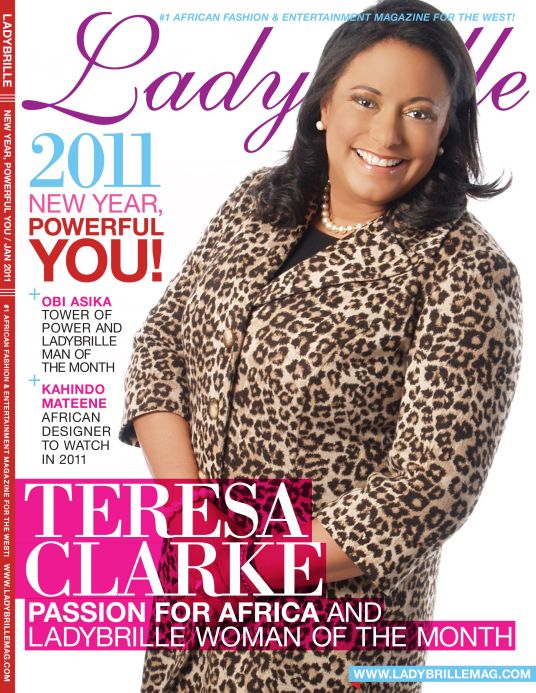 “Teresa Clarke had the fame, money and respect that came with working for Goldman Sachs, one of the largest global investment banking and securities firm in the world. She had worked hard and finally earned a highly coveted spot in the firm as a Managing Director in the investment banking division. At a glance, while it seemed admirable that she was in managerial position, one could easily shrug at the achievement until you learn Clarke is also African-American. In fact, Clarke was the first African-American woman to hold such a prestigious title at the firm. But, in 2010 all that changed.
“Teresa Clarke had the fame, money and respect that came with working for Goldman Sachs, one of the largest global investment banking and securities firm in the world. She had worked hard and finally earned a highly coveted spot in the firm as a Managing Director in the investment banking division. At a glance, while it seemed admirable that she was in managerial position, one could easily shrug at the achievement until you learn Clarke is also African-American. In fact, Clarke was the first African-American woman to hold such a prestigious title at the firm. But, in 2010 all that changed.
Clarke announced to Goldman Sachs and the world that she was leaving the powerful financial institution to pursue her love for Africa. Where was she going? Oh no! It was not a lateral transfer to another high powered position in a large firm? Instead, she was going to build from ground up her dotcom company, Africa.com. Why? Because she wanted to change the way the world sees Africa. It was indeed a very tall order and frankly illogical, from the perspective of both the financial and non-financial world.
Wasn’t Clarke a financial expert working for a major investment company? Surely she, of all persons, given her credentials (Harvard Undergraduate, Harvard Business and Law school graduate) and position at Goldman Sachs must have heard and known about the dotcom bubble of the mid 1990s?
What happened then? Investors believed the internet was the next big thing. Stock prices rose through the roof. Optimism was the order of the day and many made life altering decisions, quit their stable jobs-which they had worked years at- to became part of the dotcom revolution. However, as we all saw, the stock market and its bet on the internet was on very shaky and empty grounds. What happened? The market came crashing down and so did the many who invested in it.
Accordingly, when Clarke made her announcement, many had questions. The media had questions, the public did and so did her colleagues. Clarke, nevertheless, stood firm in her research, experience, track record of success, instinct and conviction that this was the right move at the right time for her. Indeed while at Goldman Sachs, Clarke was part of the team that identified what we now know as BRICs. The team researched, discovered and concluded that the economic potential of Brazil, Russia, India, and China (BRIC) is such that they could become one of the four most dominant economies by 2050.
If she could be a part of such visionary team, why couldn’t she be successful with Africa.com? Barely a year old, Africa.com and Teresa Clarke is beginning to soar. Ladybrille Magazine caught up with the brilliant executive who is our Woman of the Month to discuss her passion for Africa and of course what makes her uniquely brilliant, powerful and willing to take a major risk, especially as a non-African, to show the other side of Africa you don’t see on television.
________________________________________________
(We chat about everything and traveling from California to Africa, among other things. Teresa Clarke is jovial, fun and relaxed. She begins asking me questions about everything including Ladybrille; almost taking over my interview. I remind her that I am the boss and we (Ladybrille Magazine) are interviewing her not the other way around. We have a good laugh about it and she yields as we continue laughing. The interview begins.)
LADYBRILLEmag.com: Teresa why don’t I start by having you tell our audience a bit more about your background before we get into your interest in Africa, among other things.
TC: Okay. I am originally from Los Angeles. Grew up (and) went to high school there, came back east for college. I went to Harvard undergrad. I’ve always had an interest in the international (scene) but I really did not have exposure to Africa during my undergraduate years. I spent time and my summers working in London, Paris and Brazil . . . went on to grad school and knew as much about Africa as the next person. I was involved in some anti-apartheid work in college. In 1993, I had a very good friend who had a fellowship at the University of Capetown (in South Africa). I went to visit. It was my first trip to Africa and I absolutely fell in love. You know at that time there wasn’t a lot of tourist information about Africa. So I had no idea what I was walking into but I was taken by the people of Africa. I was taken by the fact that you could do anything you wanted and that there were opportunities, particularly in the non-profit space. I wanted to build an impact and had been on a board of a student sponsored program in New York and wanted to replicate that model for the children of Africa in Africa. It became quite clear to me that there was a need and an opportunity to do that.
LADYBRILLEmag.com: I find it quite interesting you say you had such love for South Africa, even back then. As an African-American didn’t you feel resentment for how Black South Africans were treated and what had happened in South Africa during apartheid?
TC: That is definitely what I felt before I got on the plane and went there. That is one of the reasons why the trip was so enlightening. I think that I found that race relations in South Africa are very complex and nuanced; and quite different from what an average African American would have imagined without understanding the context. The biggest factor that I see is what being the majority means. It is a very different dynamic for black South Africans because they, ultimately, are the majority. It is their land and their country. So while we here in the United States, from afar, want to get help for South Africans, once I got there, I understood that [b]ecause they were the majority, they are empowered in ways that African-Americans are not.
If you just take a look at the World Bank and other developmental statistics, it may appear that African Americans have the advantage in terms of the access to portable water, housing, electricity and the GPD may be higher but there are (switches her train of thought) I forgot where I saw it that other metrics should be used in order to guage the development of people. Despite apartheid, these are people who had their culture intact; they had their language [and] their history. They had a certain pride and understanding of who they are and a knowledge that they would one day ultimately overcome; and even though the land might had been taken away from them during apartheid, they knew that the land belonged to their father, grandfather and grandfather’s father. There is this certain amount of self-understanding and self-confidence that comes with that type of history. And so, once I got there, I came to understand that in a democracy, the majority wins, period.
Here in the United States, we are privileged to have an African-American President, which I never thought it possible in my lifetime, but at the end of the day, African-Americans still do not constitute the majority. In a place like South Africa where blacks do, I found that empowering. You are Nigerian. I spent some time in Nigeria and there is a whole (different) dynamic there and I am sure you appreciate the difference between a Nigerian perspective and South African perspective. Being an African-American who comes from a country where you see oppression of black people, the leap from the United States to South Africa still represents a progression towards a greater empowerment and that comes from being the majority.
LADYBRILLEmag.com: Whoa! That is such an interesting take/analysis. I have not heard that perspective before. Usually, I hear more of the resentment point of view from the few blacks I have come across that visited the country. That says to me you have a deep understanding of self. What have you done to develop yourself both inter-personally and as a woman entrepreneur and leader; where you can have that kind of foresight and insight into life in general?
TC: I am not sure that it is anything I have done proactively. I am very privileged to have a mother and grandmother who have been great role models and I think they instilled in me that sense of self. [I] think that I have been privileged to be the child and grandchild of black women who have had managerial positions and I think as a black person and as a woman, especially as a woman (black or white), when you look at women of my generation, there are very few whose grandmothers were managers or had management responsibilities. And so I think that I got that perspective from them and that was sort of passed on to me. That ability to see beyond the immediate and to grasp a broader perspective comes from the women that came before me.
LADYBRILLEmag.com: Interesting. Let me take that theme and run with it a bit since you talk about coming from a generation of women leaders. How do you define a brilliant woman?
TC: (Pauses. Begins slow and is pensive) I think a brilliant woman is someone who combines factual knowledge with extraordinary emotional intelligence.
LADYBRILLEmag.com: Hmmmm . . . say it again.
TC: She is someone who combines factual knowledge with extraordinary emotional intelligence.
LADYBRILLEmag.com: What do you mean by “extraordinary emotional intelligence”? Usually that definition is not necessarily associated with being brilliant. . .
TC: I think you chose an interesting word. You chose to ask me to define “brilliance” as opposed to “intelligent” as opposed to “smart.” I think brilliance captures or comes from a sense of a shining light i.e. brilliance. The ability to shine light requires the ability to relate to that which is around you. You can’t shine light if you don’t have the relationship with other human beings that are effective and I think that is one thing that I have noticed in my life. It is that people who are extraordinary whether they be bankers, lawyers, teachers, scientist you name it. . . (switches train of thought) The personal characteristics that make these people successful is not necessarily because they have great legal minds, or medical minds; but it is that they have the ability to influence of others, lead others . . . If you don’t possess these characteristics it is impossible to lead others. It is sort of like a tree falling in the forest and nobody hears it. It doesn’t really matter if you can’t effectively communicate and lead others towards a particular goal.
LADYBRILLEmag.com: Shinning the light on others makes for a nice transition into my next question. You were the first black woman in the investment banking division at Goldman Sachs. You left it to pursue Africa.com? It seems an insane thing to do! Why did you do it?
TC: When I advise young people who have entrepreneurial ambitions, I always encourage them to pursue those passions only after they have established the full set of resources required to make their entrepreneurial ambitions a success. That includes the management skills required to run a well functioning company, the financial skills to manage cash flow, and quite importantly, the professional reputation and relationships required to forge strategic alliances, hire well-qualified and experienced staff, and recruit a valuable set of advisors and board members.
I have always had entrepreneurial ambitions, and I feel that I followed my own advice. I have deliberately walked the talk that I give to others. I accomplished what I felt was necessary in order to launch my entrepreneurial project with a solid foundation and it has proven to be well positioned for success.
LADYBRILLmag.com: I am really going to push a bit more and take that question apart. What was the epiphany you had that made you walk away from Goldman Sachs to do Africa.com?
TC: I came upon Africa.com ten years ago while still working for Goldman Sachs. I didn’t know what to do with it. But, I knew, as you know with (Ladybrille) that it requires all you got. So, I was not able to develop the site. In my free time, I imagined what one would do with the site and I developed a dream of actually using it to engage the continent with the rest of the world. And so, there were a number of factors that coincided over the last 12months that made me appreciate that this was the right time to do it: 1) the world turning their attention towards South Africa for the world cup; 2) the success the IT space has had in Africa; 3) [g]lobal investors investing heavily in the continent; 4) seeing the GDP growth; 5) seeing the relative stability in the various governments in Africa, it just seemed like this is Africa’s moment. So, I decided February of (last) year that this would be the time to take my energy and resources to focus on Africa.
The other piece of it is the historic moment (in 2010) with (Nigeria) and other African countries celebrating 50years of independence. It is an important milestone that I think (says) it is time for Africa to take hold of this moment and redefine itself in the next 50years to come.
LADYNRILLEmag.com: Let me zoom in on your point about Africa “redefining” itself in the next 50 years to com. How does Africa.com fit in? What exactly does Africa.com do?
TC: Africa.com is a continually evolving organization and part of what we do today could be different from what we will be doing three or five years from now. Our first order of business is to take care of what comes to us organically and easily. We rank #2 on google for the search of the term Africa.
LADYBRILLEmag.com: Well, with such url, it is hard not too. That is a very clever url you chose.
TC: (In an excited tone) Yes, yes, yes, yes. You are absolutely right. Now we have to take advantage of what that means. So what does that mean to take advantage of that? Africans are not going to Google to google “Africa.” You are not going to do that.
LADYBRILLEmag.com: (I laugh) No. Definitely not.
TC: Who is going to do that? It will be someone outside of Africa who wants to learn about Africa. Their first step is when they come to us. These people 50% of them are primarily in the US, 30% in Asia and 20% in Europe. These are people who want to know more. They are thinking about traveling to Africa, they are thinking about investing in Africa, they want to know about arts and culture. That is our organic audience that comes to us quite easily. Connecting that audience to Africa is our first order of business. Soon thereafter, we seek to be the connective tissue among Africans. That requires a greater degree of efforts from us to introduce ourselves to Africans who are not going to find us on a search on google under the term “Africa.” So, we have to work harder and make sure we get the word out among Africans and make sure we are serving these Africans. We find that Africans users want to know about news, arts and culture and want to know what is happening where they live as it relates to Africa whether they be in New York, London etc. So we are developing an Arts and Culture Calendar on the site where Africans can go and search for African activities locally where they live. . .[W]e want to create a platform and stage for the rich arts and culture Africa has to offer and to help people find this information. . .
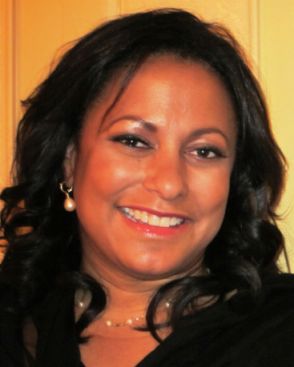 LADYBRILLEmag.com: It sounds very informative and very exciting. Where have you traveled within Africa?
LADYBRILLEmag.com: It sounds very informative and very exciting. Where have you traveled within Africa?
TC: I lived in Johannesburg for five years so I know South Africa quite well. . . Botswana, Namibia, Zambia, Mozambique. I have also done business in those countriws. I spent quite a while in Nigeria and helped develop the Venture Capital industry. I also helped develop the Nigeria Leadership Initiative (NLI) set up by the current Finance Minister of Nigeria who is a good friend.
LADYBRILLEmag.com: (I recognize NLI so I interrupt) Oh yea! We have featured NLI on Ladybrille. We actually sponsored one of their events in the past. NLI?
TC: Yeah. That’s right. I was very privileged to be involved with that. I have spent a lot of time there really starting to understand small businesses in Africa.
LADYBRILLEmag.com: Tell us what you found about small businesses in Africa?
TC: In a place like Nigeria, Nigerians do not need help in becoming entrepreneurs. Nigerians have got that down. They are sharp. The problem is the reputation surrounding governance in Nigeria. South Africa is different. The problem is the lack of an entrepreneur culture and skills. They need to be taught entrepreneur skills.
LADYBRILLEmag.com: Explain what you mean by Nigerians are ‘sharp” and do not need help to become entrepreneurs?
TC: In the US, we are loathe to stereotype blacks in any way, shape or form. But I find that Africans are very comfortable acknowledging the special characteristics that capture the spirit of a given ethnicity. Nigerians, by their own admission, and as observed by other Africans, have an innate understanding of business, combined with a tenacity and determination to achieve in the business world. I believe that this is what is behind the success of many Nigerian-Americans’ success in the US business world, and particularly in the world I know well, Wall Street.
LADYBRILLEmag.com: Aha! Got it. Back to Africa.com for a second. Are you looking for investors?
TC: I am funding Africa.com, and we are not seeking investors at this time. We may take in outside investment down the road when our expansion opportunities exceed our resources.
LADYBRILLEmag.com: Okay Teresa, it has been business talk for a minute. Let’s get a bit personal but I still want to come back to business later. For now, tell us, what drives you? What drives Teresa Clarke?
TC: I am driven by a desire to follow in the leadership footsteps established by my mother and grandmother. Both my grandmother and my mother grew up in a majority white community, and both were great leaders in their worlds. My grandmother was elected to the boards of directors of several significant community organizations in Connecticut back in the 1940s and 1950s such as United Way, Girl Scouts, Volunteer Nurses Association, etc. My mother was elected vice president of her high school class in 1954.
Just think, 1954 was also the year when the landmark school desegregation case, Brown v. Board of Education was handed down. While much of the United States was grappling with the idea of integrating black students into white schools for the first time, my mother not only excelled academically in a white school, but was elected class president. When I think about race relations back then in the pre-civil rights era, I am astounded to think of what it took for these two black women to be elected to leadership positions by their white male and female peers. I feel that I have inherited a legacy of leadership from them that knows no bounds or borders. I seek to have an impact that is as significant today as their achievements as long as 70 years ago.
LADYBRILLEmag.com: I get this question a lot and I can only imagine you do too. How do you juggle it all?
TC: It is indeed a question I also frequently get. I don’t think I have a good answer for that question. I think it is personal. . . it is about figuring out your values and what your personality and priorities are. The one thing I will say is, (involves) deciding (at times) between work and family. That is, what are the consequences of my decisions ten years from now? Fifteen minutes from now? It really helps put things in perspective. So you have a huge deal. Should you do the deal or go to your (child’s game)? You have to make an effort to answer the complicated questions.
LADYBRILLEmag.com: To answer those complicated questions, I think there must be a sense and clear understanding of your personal values and what is important to you. What are your personal values Teresa?
TC: 1) Integrity; 2) Doing what [I] say; 3) leaving the world a better place than I found it; 4) empowering others to be their best; 5) leveraging education as the great equalizer; and 6) lastly having fun! I am a prankster and having fun is very important to me. Never forget to smell the roses.
LADYBRILLEmag.com: Before I let you go, I have to jump back to business. Tell us a bit more about your South Africa scholarship program that you discussed at the outset of our interview?
TC: We are integrating the previously all white, elite schools in South Africa by recruiting, preparing, funding, and supporting the first critical mass of the best and brightest African students to these schools. I co-founded the Student Sponsorship Programme of South Africa with Nyagaka Ongeri in 2000. We are now celebrating our 10th anniversary, having provided scholarships worth over $10 million along with mentoring to more than 600 students in South Africa.
LADYBRILLEmag.com: Highly, highly impressive. Speaking of South Africa, the country was recently invited to become a part of BRICS. What are your thoughts regarding that?
TC: The concept of BRICs was created by the research department of Goldman Sachs at the time that I was a part of that group. The intention was to create a catchy acronym for Goldman’s prediction that four fast growing emerging markets’ (Brazil, Russia, India and China) economies would surpass that of the United States by the year 2050. At the time, it was a bold prediction, and one that made the global economic powerhouses of that time (the US, Japan, the UK, Germany, etc.) sit up and take notice. The concept of BRICs took off in a way that Goldman never anticipated. The phrase became a universal term to refer to the concept, and was adopted by development economists around the world.
Among those of us in the South Africa economic space, there has always been a joke that the “s” at the end of BRICs stood for South Africa.
Over the last decade, the constant reference to these four countries in the same breath has driven them to form an actual economic block. Again, this was never anticipated when the original research paper was published.
The concept was so powerful that the Goldman research department subsequently published another list called the N-11, which stands for the Next Eleven countries (after the BRICs) predicted to dominate the global economy in 2050. Of these eleven countries, Nigeria is the only African country whose economy is expected to reach this scale by 2050. The prediction is driven in large part by the size of the Nigerian population, and hence, the expected growth in the country’s own domestic market. South Africa, while an economic powerhouse today relative to other African nations, does not have the strength of a large population that will lead it to figure among the top group in the longer term. South Africa’s population is only about 45 million compared to Nigeria’s roughly 150 million.
As the group of four countries (Brazil, Russia, India and China) develop their collective economic bargaining power, there was a piece of the puzzle that was missing, and that was some representation from the continent of Africa. While South Africa is not predicted to be true BRIC in 2050, nor even a part of the Next Eleven, the economic coalition needed to include Africa to be relevant today, and thus, South Africa was invited to join the group.
LADYBRILLEmag.com: What are your predictions in terms of Africa’s overall outlook this 2011?
TC: Like most prognosticators, I expect that over the next many years, Africa will continue to become more closely integrated into the global economy. Tourism to Africa will continue to grow by double digit figures, and the United States, in particular, will continue to awaken to what the real Africa represents, beyond the stereotypes and negative images that have dominated the mindset for so long. Ladybrille and Africa.com will play important roles in helping the US and Europe change the way they see Africa!
LADYBRILLEmag.com: Thank you so much Teresa. It has been my absolute pleasure.
TC: [I] wish to congratulate you on what you have created with Ladybrille. I am very impressed with the quality of your journalism.
LADYBRILLEmag.com: Thank you.
~Interview by Uduak Oduok
~Courtesy photo
A running feature for 12 years on Ladybrille.com, The ‘Ladybrille Woman of the Month’ celebrates women in business and leadership, who empower themselves and others through their contributions and actions in their local and international communities. In 2014, the feature expanded to include a podcast show. If you would like to nominate a woman to be celebrated, please email [email protected].



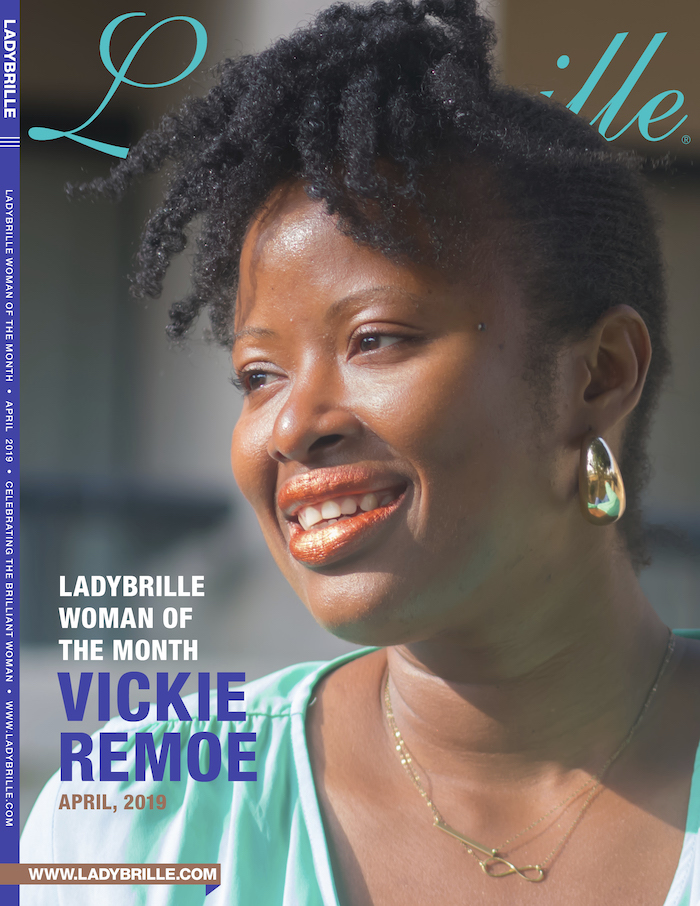
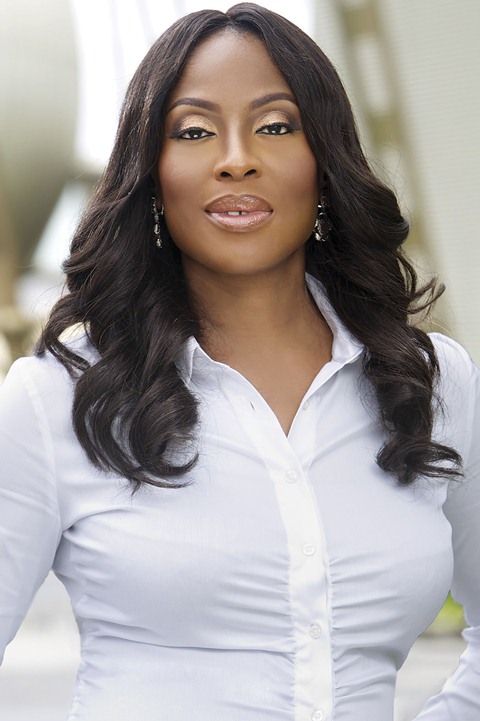
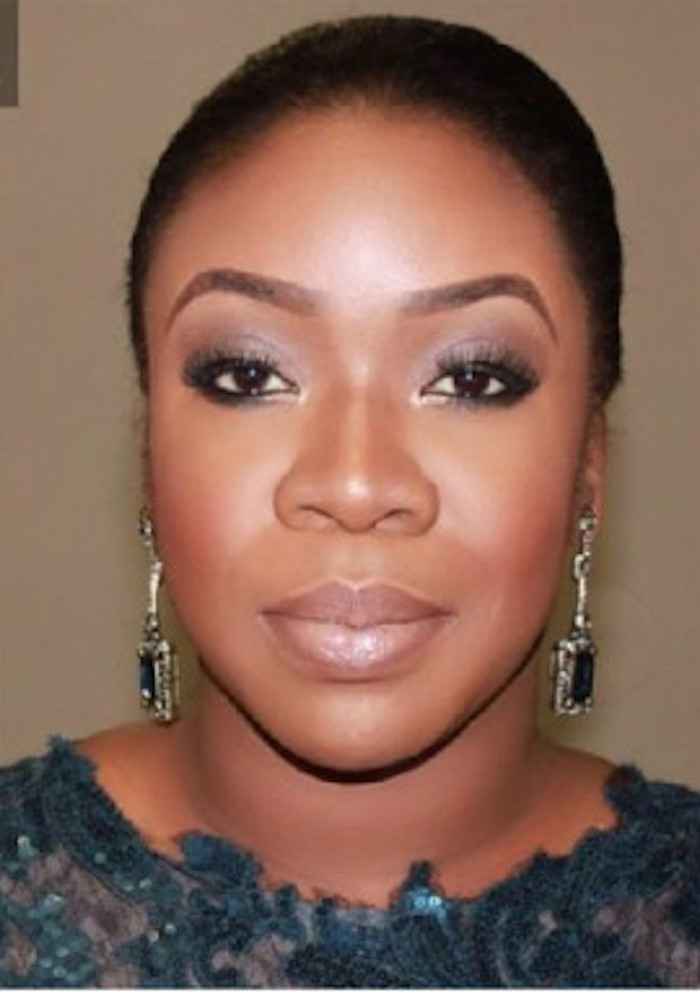
yeah i saw this woman on the BET award show last year. she is pretty amazing and inspiring. all this african americans struggling with their hard earn money could make much more and make a difference if the channel it to Africa. even our Africans in diaspora. Africa is the future
This article was truly inspriring and informative. Thank you Ladybrille for highlighting such a powerful and courageous woman, Ms. Teresa Clarke. It is so rare to read of a story such as this one. Her passion for Africa is astounding. I was especially drawn in by her assessment of South Africa and what it means to be of the majority, and the empowerment behind it…. Deep and so true! As a Caribbean woman living in the United States it resonated well with me due to the similarities. I enjoyed reading this story and I salute you Ms.Clarke.